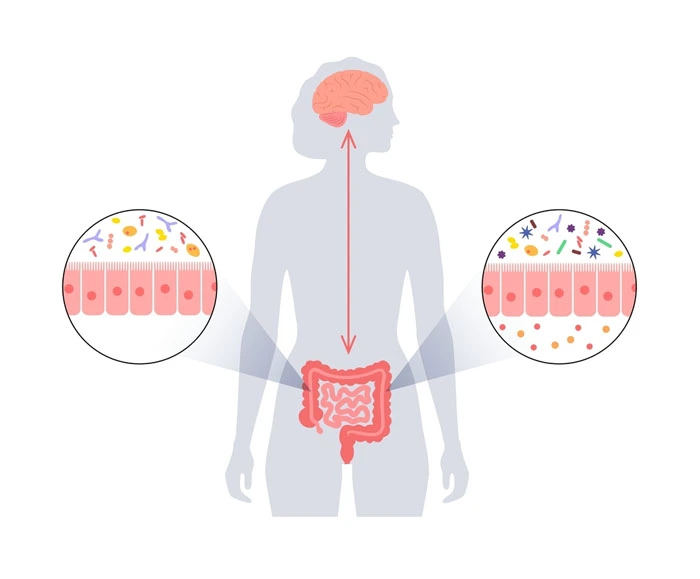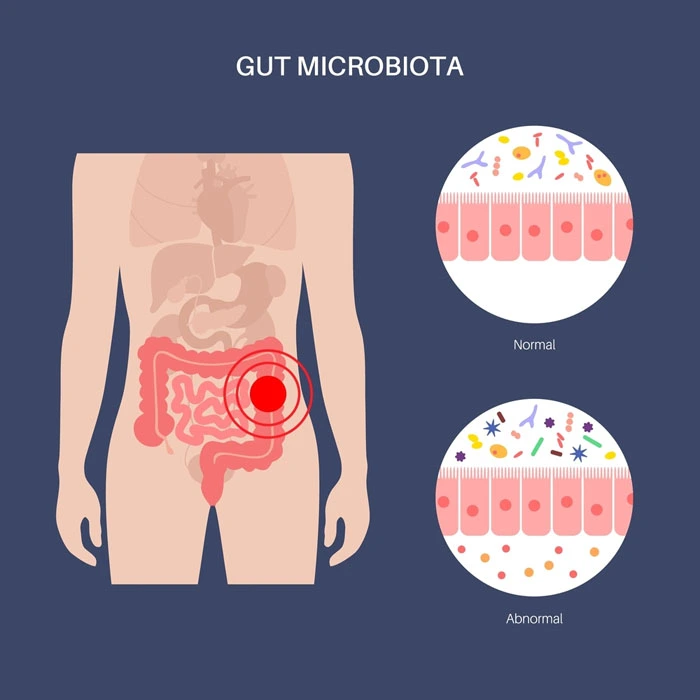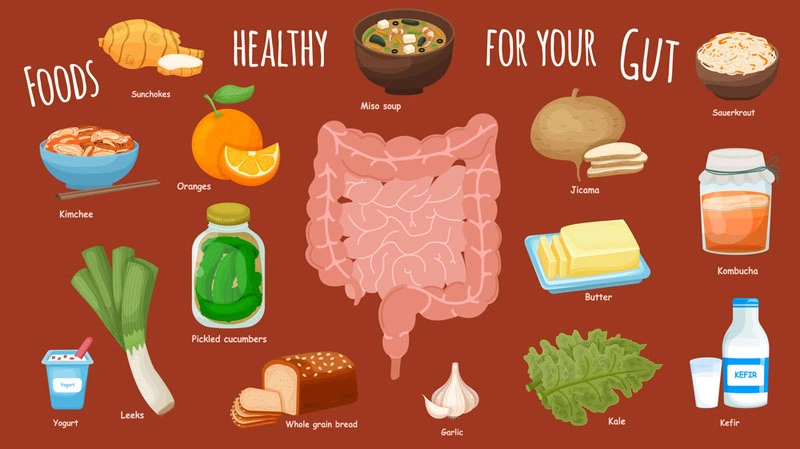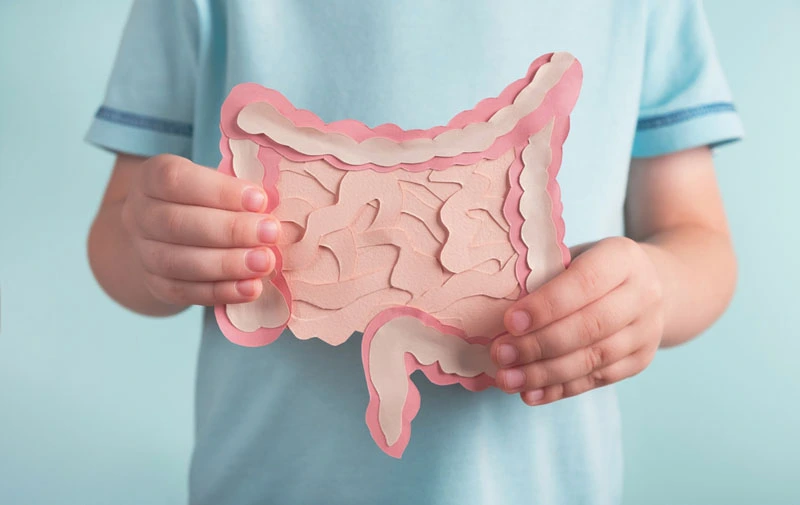When embarking on a new health regimen, we often fixate on easily visible targets like the muscles or extra pounds. But what if the most critical part of your journey lies hidden within? Welcome to the science of Microbiome Diet – the pathway to unlocking optimum gut health and overall well-being.
Imagine treating your body as a vast lush garden where trillions of microorganisms bloom and thrive; this enthusiastic population resides mostly in our gut, keeping us healthy. However, factors such as stress, pollution, or an unhealthy diet can disrupt this delicate ecosystem causing havoc on our physical and mental health. Enter the Microbiome Diet – influenced by gut-friendly foods that aim at nurturing this invisible garden within you. It’s not just another fad diet; it’s a novel approach to making peace with your inner ecosystem!
Tend to your internal flora right, which gives back ten-fold in health benefits – better digestion, enhanced immunity, weight loss, improved mood, and cognitive function…the list goes on. Scroll down to uncover how the Microbiome Diet can help paint a vibrant picture of health for you.
The microbiome diet focuses on improving the balance of beneficial bacteria in the gut through dietary changes. This can improve gut health, including reduced inflammation, better nutrient absorption, and stronger immune function. By feeding your gut bacteria with a diverse range of fiber-rich foods like vegetables, fruits, whole grains, fermented foods like sauerkraut and kimchi, and probiotics foods or supplements, you can help promote a healthy balance of gut microbes that support optimal overall health.
Decoding the Microbiome Diet
The microbiome diet is a powerful tool that can help improve gut health and overall well-being. But what exactly is the microbiome diet, and how can it benefit you? Essentially, the microbiome diet is an eating plan focusing on nourishing the gut microbiome with healthy foods promoting bacterial diversity. By promoting the growth of beneficial bacteria, this diet can help reduce inflammation, boost immunity, and even support weight loss.

But what foods should you eat on the microbiome diet? The answer lies in consuming various plant-based foods such as fruits, vegetables, whole grains, nuts, and seeds. These foods are high in fiber and prebiotics, which serve as food for the beneficial bacteria in our gut. Additionally, consuming fermented foods like yogurt and kefir that are high in probiotics and can introduce helpful bacteria to your gut flora is important.
One key aspect of the microbiome diet is consuming balanced and diverse macronutrients. For example, consuming healthy fats such as those found in nuts or avocados may have specific benefits for gut health due to interactions with gut microbial populations. Furthermore, lean proteins remain important to maintaining energy and optimal physical functioning.
For instance, a study published in the Journal of Agricultural Food Chemistry showed that when participants ate a daily serving of almonds for six weeks, they experienced positive changes in their gut microbiota composition compared to those who did not.
Moreover, the best approach to benefiting from the microbiome diet might be taking baby steps towards incorporating more gut-friendly foods into your daily routine gradually. Thus, avoiding abrupt changes could throw off your stomach’s natural balance. Remember: alterations in microbial population require time.
Let’s move on to understanding the Gut Flora.
- A 2022 study found that a plant-based diet can increase gut microbiota diversity, linked to better overall health.
- According to research, dietary alterations can induce large, temporary changes in your microbiome within 24 hours.
- Another recent scientific report indicates that individuals who consume a high-fiber diet have distinctly different gut bacteria than those who follow a more Western-style, higher fat and sugar diet with less fiber.
Understanding the Gut Flora
The gut flora is the collection of microorganisms that inhabit the digestive system. Composed of different beneficial and pathogenic bacterial species and other types of microbes such as viruses and fungi, the gut flora significantly impacts our health and wellness.
For example, studies have shown that alterations in gut flora’s bacterial populations contribute to inflammatory bowel diseases (IBD), autoimmune arthritis, type 2 diabetes, obesity, cardiovascular diseases, and even neurological dysfunction.
Furthermore, evidence suggests that the state of our gut microbiome affects many aspects of our physical health, including immunity regulation, metabolic processes related to nutrient utilization from food, brain function regulation, and emotional well-being.
However, not everyone agrees on gut bacteria’s importance to overall health. While some believe that a healthy microbiome is a critical factor for optimal well-being, others argue that much more research needs to be done to establish a direct causal link between the composition of gut bacteria and disease outcomes.

Think about your gut microbiome like a garden- just like a garden requires fertile soil, water, sunlight, and regular attention to flourish- our gut microbiome requires careful nurturing too! Feeding it high-quality foods with prebiotic fibers can ‘fertilize’ our live gut-friendly bacteria taking up residence in the intestinal tract while at the same time helping us crowd out harmful microbes that might be causing inflammation or other issues [1].
Building Your Microbiome Diet Plan
The first step towards building a microbiome-friendly diet plan is to eliminate highly processed and sugary foods that can contribute to an overgrowth of unhealthy bacteria. Instead, it would be best to focus on whole foods high in fiber, antioxidants, and other beneficial nutrients for gut health. One effective strategy is to switch from refined grains to whole grains like brown rice, quinoa, and oatmeal. These complex carbohydrates feed the good bacteria in your intestines, promoting diversity and balance.
Another important consideration when planning your microbiome diet is to increase your intake of fruits and vegetables. These contain a variety of fibers, such as pectin, inulin, and resistant starch, which promote the growth of healthy gut bacteria. Aim for at least five servings daily and include various colors to get the most benefits.
In addition to fruits and vegetables, fermented foods like kefir, yogurt, kimchi, sauerkraut, and kombucha are great sources of probiotics. These live microorganisms help rebalance your gut flora by introducing beneficial new species. Make sure you choose products that contain live cultures and avoid those loaded with added sugars or artificial sweeteners.
Choosing lean proteins like chicken, turkey, fish, or legumes is also important in building a microbiome-friendly diet plan. These protein sources promote satiety without overloading the digestive system with excess fat or cholesterol. Furthermore, diets based on animal products tend to be higher in inflammatory markers than plant-based diets.
While it’s true that animal products may have negative effects on gut health due to their inflammatory properties, it’s important to remember that not all animal products are equal. For example, grass-fed beef has been shown to have a more favorable fatty acid profile than grain-fed beef and contains fewer antibiotics, hormones, and other undesirable additives.
Also, choosing healthy fats like avocados, nuts, seeds, olive oil, and fatty fish can greatly impact your microbiome health. These foods contain omega-3 fatty acids and other nutrients that reduce inflammation and promote healthy gut bacteria. Think of these foods as the fuel that helps your gut bacteria flourish.
- To build a microbiome-friendly diet plan, it is important to eliminate highly processed and sugary foods and focus on whole foods that are high in fiber, antioxidants, and other nutrients. This includes switching from refined grains to whole grains, increasing intake of fruits and vegetables, including fermented foods for probiotics, choosing lean proteins like chicken or legumes, considering grass-fed beef over grain-fed beef, and consuming healthy fats like avocados, nuts, seeds, olive oil, and fatty fish. These dietary choices can promote diversity and balance within the gut microbiome by introducing beneficial bacteria that support overall health.
Foods That Boost Your Gut Health
Regarding boosting your gut health with food, several nutrients are particularly beneficial. These include prebiotics, probiotics, polyphenols, and butyrate.
Prebiotics are dietary fibers that act as food for probiotics – the beneficial bacteria in your gut. Some great sources of prebiotic fibers include onions, garlic, bananas, leeks, asparagus, and Jerusalem artichokes. Adding these foods to your diet can help nourish your gut bacteria and promote their growth.
Probiotics are arguably the most well-known gut-friendly nutrient. These live microorganisms promote digestive health by balancing intestinal flora and supporting immune function. Fermented foods like yogurt, kefir, sauerkraut, and kimchi are excellent sources of probiotics. However, not all fermented foods are created equal – be sure to choose unpasteurized products that contain live cultures.
Polyphenols are a group of phytochemicals found in plant-based foods like berries, cocoa, coffee, tea, and red wine. Polyphenols have a variety of health benefits, including reducing inflammation and oxidative stress and promoting gut health by feeding beneficial bacteria like Bifidobacteria.

Butyrate is a short-chain fatty acid produced in the colon when gut bacteria ferment certain fiber types. Butyrate has been shown to provide energy for colon cells and improve overall gut health by reducing inflammation and oxidative stress. Foods high in fiber and promoting butyrate production include whole grains, fruits, vegetables, and legumes.
Incorporating a wide variety of these gut-boosting foods into your diet can positively impact your microbiome health. Several studies have shown that such a diet can reduce inflammation, improve immune function, support digestion, and promote well-being. Building a microbiome-friendly diet plan can be delicious and beneficial for your health with a little planning and creativity.
While there may be some individual variability in how people respond to specific foods, the consensus is that consuming more whole foods like fruits, vegetables, whole grains, and lean proteins is a great way to improve gut health. However, you must consult your healthcare provider or registered dietitian before making any major dietary changes if you have underlying health conditions or allergies.
Foods to Avoid for a Healthy Microbiome
A balanced microbiome is necessary for good gut health. The foods you consume daily have an impact on your gut microbiome. Some foods can promote bad bacteria growth, leading to inflammation and disease. Here are some foods to avoid if you want to improve your digestive health:
1. Processed Foods: Processed foods contain numerous additives, artificial sweeteners, and preservatives that can harm the gut microbiome by destroying healthy bacteria and promoting the growth of unhealthy ones. A diet high in processed foods can lead to inflammation, obesity, and chronic diseases.
2. Sugar: Sugar is known as bad news for the microbiome because it causes unhealthy bacterial overgrowth. Consuming too much sugar alters the balance of bacteria in the gut, which leads to inflammation and insulin resistance. Reducing sugar intake can help improve gut health.
3. Artificial Sweeteners: Artificial sweeteners can harm the microbiome by killing off beneficial bacteria and promoting unwanted ones. Some studies suggest that consuming artificial sweeteners increases the risk of developing metabolic syndrome and type 2 diabetes.
4. Alcohol: Excessive alcohol consumption has been linked to intestinal permeability and alterations in gut microbial composition that may lead to dysbiosis, liver disease, and other chronic diseases.
5. Saturated Fats: Saturated fats are associated with various health problems, including heart disease and stroke. It has also been observed that intake of a diet high in saturated fat leads to lower bacterial diversity in the gut.
One research study found that feeding mice a diet high in saturated fat led to decreased levels of healthy bacteria like Lactobacillus spp., Bifidobacterium spp., Ruminococcus spp., Clostridium spp., Prevotella spp., Faecalibacterium spp., Enterococcus spp. At the same time, increasing Erysipelatoclostridium spp., Streptococcus spp., Rothia spp., and Proteobacteria. Interestingly, when mice were switched to a high-fiber diet from the high-fat diet, healthy gut bacteria levels were restored.
6. Red Meat: Red meat has been shown to alter gut microbiota composition by increasing pathogenic bacteria. Research suggests that consumption of red meat increases the risk of heart disease, type 2 diabetes, colon cancer, and other chronic diseases.
There is an ongoing debate about whether red meat intake harms health. While some studies suggest that limiting red meat intake may benefit good health due to its saturated fat content, others indicate that the issue is a matter of portion size and source.
7. Gluten: Gluten sensitivity can lead to changes in gut microbiota and may promote bacterial overgrowth in the small intestine. However, it is important to note that not everyone needs to eliminate gluten, as it depends on individual tolerance.
Think of your gut as a garden that requires tending. If you plant weeds and neglect your garden by not watering it properly over time, the weeds will take over and prevent the growth of healthy plants. In the same way, unhealthy foods can promote the development of bad bacteria leading to an unhealthy microbiome environment.
The Role of Probiotics in Microbiome Diet
Probiotics are live microorganisms that provide numerous health benefits, such as improved digestive function, enhanced immune system, and reduced bloating and gas. They improve the balance of good and bad bacteria in the gut.
There are many natural sources of probiotics, including fermented foods like kimchi, kefir, sauerkraut, and yogurt. Incorporating these foods into your diet can help improve microbiome balance.
Researchers have found that consuming probiotics in various forms can help alleviate chronic diarrhea, reduce gut inflammation, and improve bloating symptoms. A review of several studies suggested that daily consumption of probiotics led to improved mental health, specifically reduced depression and anxiety symptoms.
A study conducted on 274 employees showed significant improvement in gastrointestinal function and reduced work-related stress after consuming either a probiotic drink or probiotic yogurt for four weeks. Another study found that women who consumed yogurt containing Lactobacillus acidophilus experienced improved digestion and fewer abdominal pain.
It is important to note that not all probiotics are created equal, and their effectiveness may depend on the specific strain used. Moreover, probiotics may be unsuitable for individuals with weakened immune systems or certain medical conditions such as short bowel syndrome.
Link Between Microbiome Balance and Wellness.
The link between microbiome balance and overall wellness has been a topic of interest in recent years, with many studies pointing to the crucial role of gut flora in maintaining good health. The gut microbiome, comprised of an intricate network of microorganisms such as bacteria, viruses, fungi, and protozoa, plays a vital role in various physiological processes promoting optimal health. These include digestion, absorption of nutrients, regulation of metabolism, and immune system function.
The microbiome can influence overall wellness by affecting our mental health. Recent research has linked certain imbalances in gut bacteria to conditions such as depression, anxiety, and mood disorders. These conditions are often treated by altering the levels of neurotransmitters such as serotonin within the brain. Surprisingly, around 90% of all serotonin receptors exist inside the gastrointestinal tract, so disturbances to this area via changes in the bacterial composition can severely impact bodily systems involving mood and overall well-being.
In addition to its involvement in mental health, research suggests that a healthy microbiome can be protective against a range of chronic diseases such as obesity, type 2 diabetes, heart disease, and certain cancers. This is due to short-chain fatty acid production that helps establish an acidic environment in the gut, which can reduce or eliminate harmful pathogens that thrive in more basic environments.
Studies show that dysbiosis or disruption of microbial balance contributes significantly to the development of these chronic diseases. Poor diet choices can cause this disruption where unhealthy bacteria begin outnumbering healthy ones leading to increased risk for inflammation and other digestive complications, including leaky gut syndrome, where chemical compounds produced by harmful bacteria cross over from the intestine into the bloodstream leading to inflammation throughout different parts of the body.
On the debate side, there is still some concern over whether or not improving gut bacteria can help resolve medical issues. Recently some published studies have shown mixed results on the link between enhanced microbiome balance and treating certain conditions. Though it is important to recognize that there are likely many other important factors at play, including genetics, healthy bacteria in the gut can still positively impact any condition with inflammation as a significant cause.
Think of having healthy bacteria in your gut like having good tenants in your apartment complex. Good tenants (beneficial bacteria) living alongside one another promote cleanliness and establish a community where everyone thrives (short-chain fatty acid production). But by contrast, when bad tenants (unhealthy bacteria) move into the building, disregard for cleaning standards can spread throughout many different apartments leading to a lack of accountability among residents and increasing ill-will towards other individuals (dysbiosis).
Maintaining a healthy balance of gut bacteria can significantly impact our overall well-being. By paying attention to what we eat, avoiding processed foods, and prioritizing plant-based foods that feed beneficial gut bacteria – alongside regular probiotics supplements — we can help maintain optimal flora health and prevent many chronic illnesses down the line.
Frequently Asked Questions Explained
How long does it take to see results from following a microbiome diet?
The answer to this question is not straightforward, as every individual’s microbiome composition and response to dietary changes may differ. However, studies have shown that a microbiome diet can manifest results within weeks.
A study published in the International Journal of Obesity found that obese individuals who followed a microbiome diet for four weeks had significant reductions in body weight, fat mass, and improvements in insulin sensitivity compared to those who followed a standard low-fat diet(1). Another study published in Nutrients analyzed the effects of a high-fiber diet on gut microbiota composition and found that positive changes in gut bacteria could be observed after only two weeks of dietary intervention(2).
Moreover, a study published in Nature Communications showed that participants following a plant-based, high-fiber diet experienced an increased abundance of beneficial gut microbes within 24 hours(3). This suggests that the impact of dietary changes on gut health can be quite immediate.
In summary, the timeline for seeing results from a microbiome diet can vary among individuals. However, studies have shown that positive changes in gut flora composition and metabolic markers can occur within weeks to even just 24 hours after dietary intervention.
References:
1. Pedersen HK, Gudmundsdottir V, Nielsen HB et al. Human gut microbes impact host serum metabolome and insulin sensitivity. Nature 2016;535:376-381.
2. Haro C, Montes-Borrego M, Rangel-Zúñiga OA et al. Two-Week High-Resolution Melting Quantitative Fecal Microbiota Transplantation Reveals Short-Term Safety and Efficacy Against Recurrent Clostridioides difficile Infection. Nutrients 2020;12:1149.
3. David LA, Maurice CF, Carmody RN et al.Diet rapidly and reproducibly alters the human gut microbiome. Nature 2014;505:559-563.
Can a microbiome diet help with specific gut-related conditions, such as irritable bowel syndrome or inflammatory bowel disease?
A microbiome diet can help with specific gut-related conditions, including irritable bowel syndrome (IBS) and inflammatory bowel disease (IBD). Research shows that a balanced and diverse gut microbiome is crucial in maintaining overall gut health and preventing these conditions.
One study found that a diet rich in fiber and plant-based foods significantly improved symptoms in patients with IBS (https://www.ncbi.nlm.nih.gov/pubmed/28445436). Another study showed that a low-FODMAP diet, which limits certain types of carbohydrates known to exacerbate IBS symptoms, also improved symptoms in 50-80% of patients (https://www.ncbi.nlm.nih.gov/pubmed/24439838).
For IBD, research has shown that a diet high in fruits, vegetables, whole grains, and fermented foods can improve symptoms and reduce inflammation (https://www.ncbi.nlm.nih.gov/pubmed/30893538). Additionally, there is evidence that certain probiotics may benefit those with IBD (https://www.ncbi.nlm.nih.gov/pubmed/29385771).
Overall, while more research is needed, it’s clear that a microbiome diet can greatly improve gut-related conditions like IBS and IBD. Individuals with these conditions may relieve their symptoms significantly by promoting a balanced and diverse gut microbiome through dietary changes.
How does the microbiome diet compare to other dietary approaches for improving gut health?
The microbiome diet is highly effective for improving gut health and overall well-being. Unlike other diets that focus solely on calorie counting or macronutrient ratios, the microbiome diet emphasizes the importance of consuming a wide variety of nutrient-dense foods that support the growth and diversity of beneficial gut bacteria.
Research has shown that a healthy microbiome is critical for digestive function, immune system regulation, and mental health. Studies have found that individuals with imbalanced gut bacteria are more likely to experience depression and anxiety (1).
Compared to other popular diets, such as keto or intermittent fasting, the microbiome diet offers a more sustainable and balanced approach to gut health. According to one study, individuals who followed a plant-based, high-fiber diet for four weeks experienced significant improvements in gut diversity and reduced inflammation (2).
The microbiome diet can also be customized to fit individual needs and preferences. For example, those with conditions such as irritable bowel syndrome (IBS) may benefit from minimizing certain carbohydrates that can exacerbate symptoms (3).
In summary, if you want to improve your gut health and overall well-being, the microbiome diet is a scientifically supported approach worth considering.
References:
1. Foster JA, et al. Gut-brain axis: how the microbiome influences anxiety and depression. Trends Neurosci. 2013;36(5):305-12.
2. Campbell SC et al. A Plant-Based Diet Improves Gut Microbiota Composition and Nutrient Absorption in Healthy Adults: A Randomized Controlled Trial. Cell Host & Microbe. 2019;26(2):234–45.e5.
3. Halmos EP et al. Diets that differ in their FODMAP content alter the colonic luminal microenvironment. Gut 2015;64:93-100
Are any specific foods or supplements particularly beneficial for improving gut health through the microbiome diet?
Some specific foods and supplements can greatly enhance gut health through the microbiome diet. Some of the top dietary choices include fermented foods such as kimchi, kefir, unpasteurized sauerkraut, and yogurt. These foods contain probiotics that can support healthy bacterial growth within the gut and improve digestion (1). Other important dietary factors for gut health include prebiotic fibers such as inulin, found in foods like onions, garlic, and bananas. These fibers nourish beneficial bacteria in the gut (2).
In addition to incorporating these foods into one’s microbiome diet, certain supplements have been shown to enhance gut health. For instance, studies have revealed that supplementation with Lactobacillus and Bifidobacterium strains improves intestinal immunity and may reduce symptoms of illnesses such as irritable bowel syndrome (3).
Other supplements include digestive enzymes and herbs like ginger and chamomile that can aid digestion and reduce inflammation within the digestive tract (4). It is important to remember that while these supplements can help support gut health when directed by a healthcare professional, they should not be used in place of a well-balanced diet.
The microbiome diet has become increasingly popular in recent years due to growing awareness regarding the importance of a healthy gut for overall health and wellness. Incorporating fermented foods and prebiotic fiber sources into one’s diet and utilizing appropriate supplements can significantly impact gut health and improve well-being.
References:
1) Heiman ML et al. (2016). The Microbiome-and Gut-brain Axis: Implications for Developmental Disabilities. Current developmental disorders reports. 3(1):18-26.
2) Slavin J. (2013). Fiber and Prebiotics: Mechanisms and Health Benefits. Nutrients. 5(4):1417-1435.
3) Ford AC et al. (2018). Efficacy of prebiotics, probiotics, and synbiotics in irritable bowel syndrome and chronic idiopathic constipation: systematic review and meta-analysis. The American journal of gastroenterology. 113(4): 554-574.
4) Guarner F et al. (2006). Gut flora in health and disease. The Lancet. 368: 1678–89.
What are the potential risks or side effects of following a microbiome diet?
While the microbiome diet has gained popularity in recent years to improve gut health and overall well-being, individuals should be aware of potential risks and side effects. One potential risk is the possibility of nutrient deficiencies. Because the diet involves limiting certain food groups, such as dairy and gluten, it may be challenging for individuals to get enough vitamins and minerals from their diet alone. Studies have found that individuals following a microbiome diet may have lower vitamin B12 and calcium levels, which are important for bone health (1).
Another concern is the potential for gut dysbiosis. While the microbiome diet aims to increase the diversity and abundance of beneficial bacteria in the gut, some research suggests that restricting certain food groups could lead to an imbalanced microbiome. In one study, researchers found that individuals who followed a low-carbohydrate diet had lower levels of beneficial gut bacteria and an increase in potentially harmful bacteria (2).
Lastly, it’s important to note that not everyone may benefit from a microbiome diet. A study published in the Journal of Clinical Endocrinology & Metabolism found that while some individuals improved insulin sensitivity after a microbiome-friendly meal plan, others did not (3). Therefore, individuals must talk to their healthcare provider before starting any new diet or significantly changing their eating habits.
In conclusion, while the microbiome diet can offer many potential benefits for gut health and overall well-being, there are also risks and side effects that individuals should be aware of. To minimize these risks, it’s important to maintain a balanced and varied diet that meets all nutritional needs.
References:
1. Pimentel M et al. Low Fermentable Oligo-, Di-, Mono-Saccharides And Polyols Diet In The Treatment Of Irritable Bowel Syndrome: A Systematic Review And Meta-Analysis. PLoS One. 2015;10(9):e0138523.
2. Haro C et al. The Gut Microbial Community in Metabolic Syndrome Patients Is Modified by Diet. Journal of Nutrition. 2016;146(11):doi:10.3945/jn.116.230258
3. Frost G et al. Impacts of Plant-Based Foods in Ancestral Hominin Diets on the Metabolism and Functionality of Gut Microbiota In Vitro. mBio. 2014;5(




